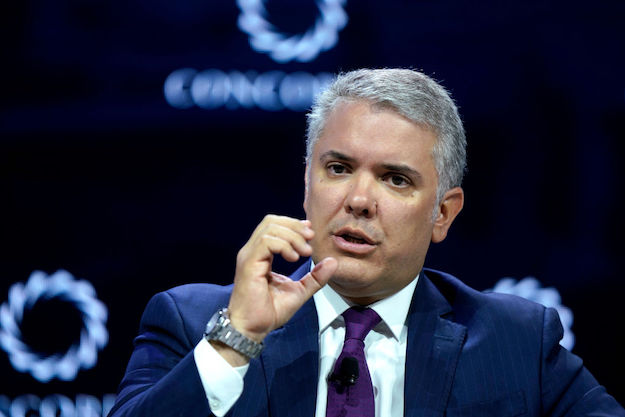BOGOTÁ – Rumors over the possibility of a wide-ranging pension reform were a key trigger of social unrest in Colombia last November. The government’s response at the time was to deny that any reform was in the works, and suggest that protesters were misleading the public. Fast forward to January and, after a cabinet shuffle, Alicia Arango, the former labor minister and current interior minister, has announced that the government is preparing exactly that, and will present a labor and pension reform bill to Congress.
Arango will be tasked with leading the initiative once the next legislative session begins on March 16. Instead of using the phrase “pension reform” to describe its initiative, the government has resorted to calling it “reform for the protection of the elderly.” The change is unlikely to do much to quiet reactions to the proposal. Promoters of a national strike – led by student groups, unions, environmentalist organizations and supporters of the peace agreement with the FARC – have already begun rallying their supporters to return to the streets in response to the expected reform bills.
Any broad reform to trim Colombia’s pension system, which some believe could include partial privatization, would come at a high political cost to President Iván Duque, who has little political capital to spare. At the same time, Colombia’s pension problem indeed requires an urgent fix. Something has to give.
The politics of pensions
According to our analysis, the number of people who benefit from the pension system is highly disproportionate to its cost, which is becoming prohibitive. Close to 16% of the national budget is used to cover pensions for approximately 2.1 million people, while the total elderly population exceeds 6.5 million.
High rates of tax evasion on social security contributions and informal labor around 48% of the workforce exacerbate the problem.
There is no shortage of well-reasoned proposals from think tanks, multilateral development banks and the private sector to address the issue. Economists from the International Monetary Fund (IMF) recently said that structural reforms, including meaningful pension reform, will be needed if Colombia is to continue to grow its economy.
But few of these proposals take into account the political complexity of introducing a reform that raises the retirement age, increases individual contributions and does away with benefits for higher income pensions – changes which are central to most of the ideas on offer.
Some of these changes may indeed be included in the government’s forthcoming proposal. But they will be very difficult for Duque to pass through Congress. His approval ratings remain low and the current social atmosphere has increased pressure on independent political parties to oppose unpopular reforms. Students, teachers, transportation workers and others continue to flood Bogotá’s streets to protest everything from restrictions on truck drivers to violence against protesters themselves. In the meantime, Duque’s government is contending with the challenge of integrating roughly 1.7 million Venezuelans who have taken up residence in the country.
The government has not yet shared details of its reform proposal, and cabinet members have seemed to be at odds with one another in setting priorities. Finance Minister Alberto Carrasquilla asserts, for example, that one of the main purposes of the reform should be to transition from set benefits to a system based on individual savings. Duque and Arango, however, maintain that benefits would remain unaffected by any reform plan.
Pension reform will likely be the main issue on the legislative agenda that the Duque administration introduces in coming weeks. But getting meaningful reform approved, for the time being, is unlikely. Even if Duque is able to withstand the public pressure that will follow the introduction of his proposal, success will depend on his ability to compromise with independent parties. On that score, the president’s first 18 months in office offer little cause for optimism.
—
Guzmán is the director of Colombia Risk Analysis, a political risk consulting firm based in Bogotá. Follow him on Twitter @SergioGuzmanE and @ColombiaRisk








